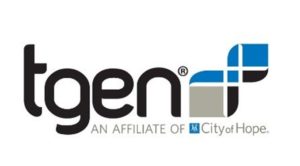Meta-analysis points to potential new therapeutic pathways

Johanna DiStefano Ph.D., Professor Metabolic and Fibrotic Disease Program; Head
Diabetes and Fibrotic Disease Unit (Image credit: TGen)
PHOENIX, AZ — April 4, 2024 — In the largest study of its kind, researchers from the Translational Genomics Research Institute (TGen), part of City of Hope, have identified genes that appear to drive the progression of metabolic dysfunction-associated steatotic liver disease (MASLD) and metabolic dysfunction-associated steatohepatitis (MASH).
Formerly known as non-alcoholic fatty liver disease, MASLD affects about 30% of the global population, a number that is expected to nearly double by 2040. People with MASH, the more severe form of the disease, have a greater risk of deadly and disabling conditions such as fibrosis, cirrhosis, and hepatocellular carcinoma.
The absence of pharmacological interventions for MASH until the recent FDA approval in March 2024 underscores the urgent need addressed by this research.
In their report published April 2 in Life Science Alliance TGen researchers Johanna K. DiStefano, Ph.D., and Ignazio S. Piras, Ph.D., analyzed liver gene expression datasets derived from ten diverse cohorts comprising 1,058 patients and controls to find out more about the molecular drivers of MASLD. Their meta-analysis is the largest study of gene expression from liver biopsies to date, comparing more than 12,000 shared genes across the datasets.
Combining data from different datasets allowed the researchers to obtain a more robust perspective of gene expression patterns from the individual studies alone, which are more prone to false positive and negative results, explained Piras.
“Given the complex nature of MASLD, which is influenced by diverse genetic, lifestyle, demographic, and environmental factors, we would expect many genes across a number of different pathways to be involved,” said DiStefano, Professor and Head of the TGen Diabetes and Fibrotic Disease Unit. “However, our investigation is the first to look at drivers of this disease progression from this unique perspective.”
Among their findings, the scientists identified two different networks of genes co-expressed in the liver disease—one comprised of genes that were already known to be involved in MASLD, but also a second network of genes that had never been linked to the disease.
“Based on our rigorous statistical analysis, these are genes that are great candidates for driving disease progression,” said DiStefano, “and they highlight promising candidates for targeted interventions, opening the door for the development of new treatments to prevent MASH,” she added.
The researchers also found different gene expression patterns in MASLD and MASH. The differences between the two conditions were even larger than those between MASLD or MASH and healthy liver tissue.
“Some of those genes may exhibit differential expression due to the compromised function of the liver in MASH compared to MASLD,” DiStefano explained. “Additionally, these genes could be specifically activated, contributing directly to the development of MASH.”
Not everyone with MASLD progresses to MASH, although predictors include conditions such as excess adiposity, type 2 diabetes and metabolic syndrome.
Learning more about the genetic mechanisms underlying disease progression could help clinicians better predict which patients might be more likely to develop MASH, Piras noted.
Research funding for the study comes from a grant from the National Institute of Diabetes and Digestive and Kidney Diseases (R01DK127015).
# # #

About TGen, part of City of Hope
Translational Genomics Research Institute (TGen) is a Phoenix, Arizona-based nonprofit organization dedicated to conducting groundbreaking research with life-changing results. TGen is part of City of Hope, a world-renowned independent research and treatment center for cancer, diabetes and other life-threatening diseases. This precision medicine affiliation enables both institutes to complement each other in research and patient care, with City of Hope providing a significant clinical setting to advance scientific discoveries made by TGen. TGen is focused on helping patients with neurological disorders, cancer, diabetes and infectious diseases through cutting-edge translational research (the process of rapidly moving research toward patient benefit). TGen physicians and scientists work to unravel the genetic components of both common and complex rare diseases in adults and children. Working with collaborators in the scientific and medical communities worldwide, TGen makes a substantial contribution to help patients through efficiency and effectiveness of the translational process. Follow TGen on Facebook, LinkedIn and X @TGen.
Written by Becky Ham /Posted Thursday April 4, 2024
SOURCE: https://www.tgen.org/news/2024/april/04/tgen-study-reveals-genetic-drivers-of-common-liver-disease/
